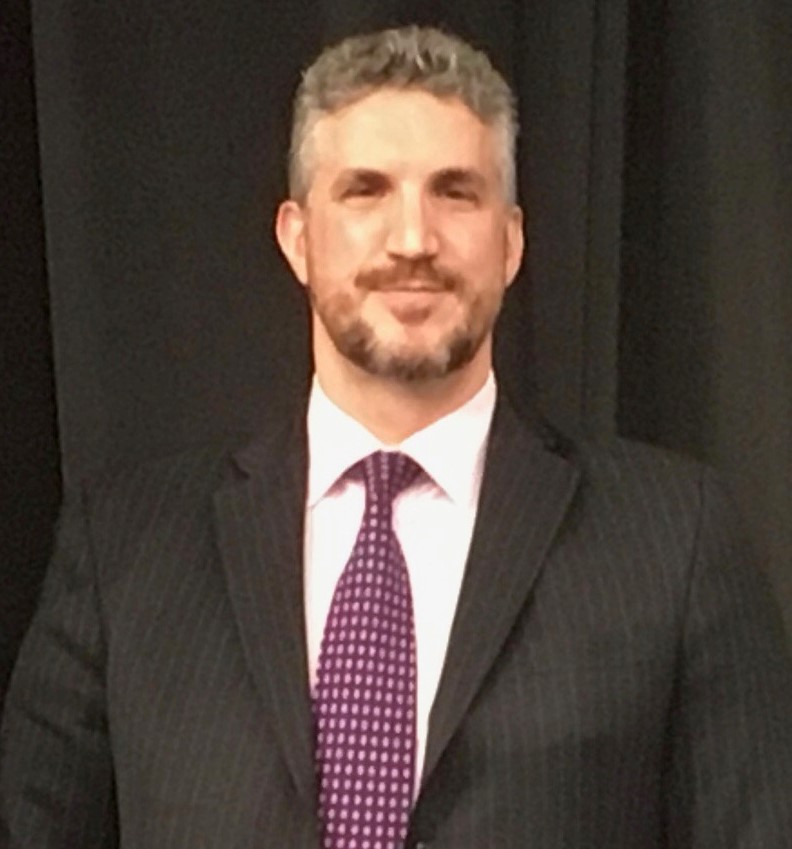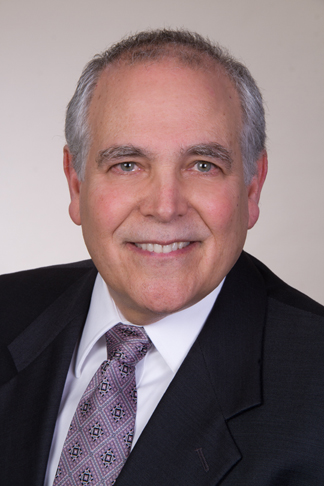Dear Law Enforcement Officer:
The attack on police has gained momentum from anti-police organizations that have exploited a relatively few tragic incidents and have, in many cases, falsely characterized such cases as illegal shootings or incidents of police brutality. Some corporations and celebrities have accepted the false narrative of widespread police misconduct and have funded these organizations. The media has focused on the mob action and too many politicians have accepted the message and/or fear the mob.
The attack on police is dangerous. It has and will continue to make our communities less safe. Please review the memorandums written about these issues. We need our government officials to seek and know the truth about police conduct before condemning police and placing unnecessary restrictions on law enforcement. We need to work together to support good and caring police who properly perform their jobs to make our communities better and safer.
Elliot B. Spector, President

Sergeant Russ Iger has served with the Coventry Police Department since December 2012. Currently, he is assigned as the evening patrol supervisor, and coordinator for the Officer Wellness Committee, Lethality Assessment Program (LAP), and U-Visa certification for non-immigrant crime victims. He has also taken on the role of drafting policies, and revising department directives to be compliant with current State and Federal law.
In addition to being a POSTC certified instructor in Constitutional Law, Connecticut Criminal Law, Immigration Law, Laws of Arrest, Search and Seizure, Use of Less Lethal Force (EDW), Stress Management, Suicide Recognition, and Human Trafficking; he is a licensed attorney admitted to the State Bars of New York and Connecticut, and the Federal Bars of the Southern and Eastern Districts of New York and District of Connecticut.
Previously, his duties included acting as a Field Training Officer (FTO), Crisis Intervention Team (CIT) coordinator, a member of a regional Critical Incident Stress Management team, and Vice President of the Police Union. As coordinator of the Officer Wellness Committee, he instituted the use of annual wellness checks for officers and dispatchers, provided access to mindfulness and yoga training for staff and their spouses, and developed the Department’s Peer Support Program. Sgt. Iger has presented statewide for the Governor’s Prevention Partnership and the Connecticut Alliance to Benefit Law Enforcement, and is a recipient of the Connecticut Police Chiefs Association “Serve Well, Be Well” Award.
Prior to joining law enforcement, he established a successful cafe and trekking business in the Tibetan foothills (igertrekking.webs.com / blackpotterycoffee.webs.com). In 2011, he received the “Mekong Responsible Tourism Award” for promoting sustainable tourism and local economic development while preserving cultural heritage. He also instituted the international law program at Yunnan University of Finance and Economics covering areas such as the World Trade Organization, Chinese and Foreign Contract Law, and International Criminal Law. In 2007, he received the “Yunnan Friendship Award” for significant contributions to the development of the People’s Republic of China, the highest award given to foreign experts by the Chinese Government.
As an associate attorney in New York City with Bernstein Liebhard LLP, he investigated white collar crime and securities compliance. Prior to becoming an attorney, he worked as a Political Office intern for the United States Department of State at the American Embassy in Hanoi; an International Election Observer in Cambodia; and for the Japanese Ministry of Education.
He is a 2002 graduate of the St. Johns University School of Law, where he acted as the Executive Notes & Comments Editor of the New York International Law Review, and he holds a bachelor’s degree from the University of Connecticut in Philosophy and Asian Studies. Sergeant Iger is a certified instructor of Dog Brothers Martial Arts, and a fluent Mandarin Chinese speaker. He has a passion for teaching, and criminal justice policy and reform.

Chief Alaric J. Fox was sworn in as the 15th Chief of the Enfield Police Department on March 12, 2018. Chief Fox entered into service with the Enfield Police Department after a 24-year career with the Connecticut State Police. During that time has worked as a Patrol Trooper, a Resident Trooper, a Training Academy Staff Instructor, a Patrol Sergeant, a Resident Trooper Sergeant, and as a Sergeant in the Legal Affairs Unit on the Commissioner’s Staff. In 2004, Chief Fox was promoted to the rank of Lieutenant, thereafter serving as the Commanding Officer of Troop “C” Tolland, and later as the Commandant of the State Police Training Academy. In 2010, Chief Fox was promoted to the rank of Captain where he served as the Commanding Officer of the Bureau of Selections and Training and later as the Commanding Officer of the Professional Standards Unit. In 2011, Chief Fox was promoted to the rank of Major where he served as the Chief of Staff to two State Police Colonels. On April 1, 2016, Chief Fox was promoted to the position as Colonel of the Connecticut State Police and Deputy Commissioner of the Department of Emergency Services and Public Protection, a position that he held until his retirement from state service.
Chief Fox began his law enforcement career as a police officer with the Willimantic Police Department, serving in this capacity for seven years, and as an FBI Agent, serving in this capacity for two years. Additionally, Chief Fox was employed for a two-year period as an attorney in private practice, specializing in a variety of labor and employment law matters. Chief Fox has lectured across the country, over the past twenty-three years, to a wide array of law enforcement and collegiate audiences, in subject areas including Criminal Law, Careers in Criminal Justice, Police Civil Liability, Labor and Employment Law, and Police Criminal Procedure.
Chief Fox holds a Bachelor’s Degree, cum laude, in Criminal Justice/Law Enforcement Administration from the University of New Haven, and a Juris Doctor Degree, magna cum laude, from Western New England University School of Law, having additionally studied for one semester at Cambridge University, Cambridge, England. He is also a graduate of the FBI National Academy in Virginia, as well as the FBI National Executive Institute. In his spare time Chief Fox has completed twenty (and counting!) marathons, twice breaking the elusive three-hour barrier.

From 1986 until 2005, David Yale served on the Waterbury, Connecticut Police Department. Most of his career he worked in the Patrol Division and was the most senior patrol sergeant when he retired. He also worked two years as a sworn police dispatcher, and several years as a communications supervisor in the dispatch center. During his time in communications he developed a training curriculum for civilian 911 call takers and established disaster procedures for the dispatch center should it have to physically relocate.
David obtained a bachelor’s degree from Marshall University in Criminal Justice in 1983. In 1997 he became licensed as an attorney, having attended the University of Connecticut Law School evenings and working in his police position on the third shift. Shortly after he was licensed, David became a POST certified police instructor. He eventually taught 14 hours of the 80-hour re-certification program for the northwest region and served as an instructor when the Waterbury Police Department opened its own recruit academy. Subjects he taught included Police Liability, Search and Seizure and Use of Force.
In 2005, when he retired, David joined the litigation department of the firm of Willinger, Willinger and Bucci in Bridgeport, Connecticut. In 2007 he moved to the firm of Noble, Spector, Young and O’Connor in Hartford, Connecticut, and merged into Hassett & George in Glastonbury in 2014 where he continues to practice.
His legal responsibilities include defending police officers and municipalities in federal and state court against accusations of civil rights violations, having argued successfully in the United States District Court and Second Circuit Court of Appeals. He has also assisted police officers that were charged with criminal offenses, faced disciplinary action, or became involved in family law situations. His practice also includes non-police related matters, including personal injury, commercial litigation and real estate.
Dave is a former business owner and operated a company that consulted on, sold, and serviced computer hardware. He is also involved in 3D design and production using emerging 3D printing and additive manufacturing technology.

After receiving his B.A. in Urban/Government Studies from the University of Connecticut in 1969, Mr. Spector researched his options for service to the community. Among his choices were service in the Peace Corps, the military, and/or law enforcement. Although he had a medical disqualification from the draft board (bad knees), in 1970 during the Vietnam era he volunteered to serve in the Air Force. He simultaneously applied to the Hartford Police Department. He was accepted for a position with the Hartford Police Department but soon after was accepted into the Air Force. He was granted a leave of absence from the Police Department and became a distinguished graduate of the U.S. Air Force School of Military Science, and was trained as a pilot. With the war winding down Mr. Spector made the career choice to return to policing and continue with the Air Force on reserve status where he served for four more years until he was honorably discharged as a 1st Lieutenant in 1975. To enhance his ability to serve the community he began taking Spanish courses resulting in a second B.A. in Foreign Language Studies from the University of Hartford (1975).
Mr. Spector’s positions at the police department included patrol officer, civil litigation officer, and acting general counsel. He also served on the accident and firearms review boards. These legally related positions concerning police liability and misconduct influenced his decision to continue his education, earning a Juris Doctorate at the University of Connecticut School of Law (1981). He developed the first police liability training program in Connecticut, which is now mandated by POST.
In 1980 Mr. Spector, while clerking for Superior Court Judge Milton Fishman, (President of the Connecticut Criminal Law Foundation, Inc., a non-profit police training entity established under a Federal Grant), was asked to teach a class on police and the law. The appreciation of officers in class and the realization of his ability to positively influence officers soon made teaching a passion. In 1986 he succeeded Judge Fishman and has been President of Spector Criminal Justice Training Network, Inc., formerly known as Connecticut Criminal Law Foundation, Inc., ever since. Spector Training provides quality training to thousands of CT’s law enforcement officers from Patrol Officers to Chiefs of Police.
Since 1981 Mr. Spector has been in private practice representing police officers in various capacities. He has litigated numerous cases including 25 appellate arguments before our State Appellate Court and the Second Circuit, as well as, several briefs to the U.S. Supreme Court. He is presently with the general practice firm of Hassett & George, serving the needs of officers and their families.
During his thirty-seven years of representing the law enforcement community, he has seen a steady decline in the number of meritorious lawsuits brought against police officers related to alleged civil rights violations. He attributes this to the quality of training being offered to Connecticut police officers by qualified subject matter professionals, as well as, the pre-action advice and policy review to departments he serves.
Improving the quality of policing improves relationships with members of the community, reduces crime and enhances the ability of police to serve and protect the community. There is a direct correlation between the quality of police training and job performance. Reducing the incidence of misconduct and negligence saves lives, reduces injuries and lawsuits and the attendant related costs. As an attorney, Mr. Spector may spend months or years working on a lawsuit. As a teacher, he can prevent a future suit in one class day. The cost of the single class pales in comparison to the human and financial losses related to a single incident resulting in a civil rights violation and/or physical harm leading to litigation.
Mr. Spector has served on advisory committees for the NIJ, FBI, DEA, IACP, Connecticut Legislature and law enforcement committees. He has provided legal advice and/or worked on policies for the majority of Connecticut’s municipal police agencies.




